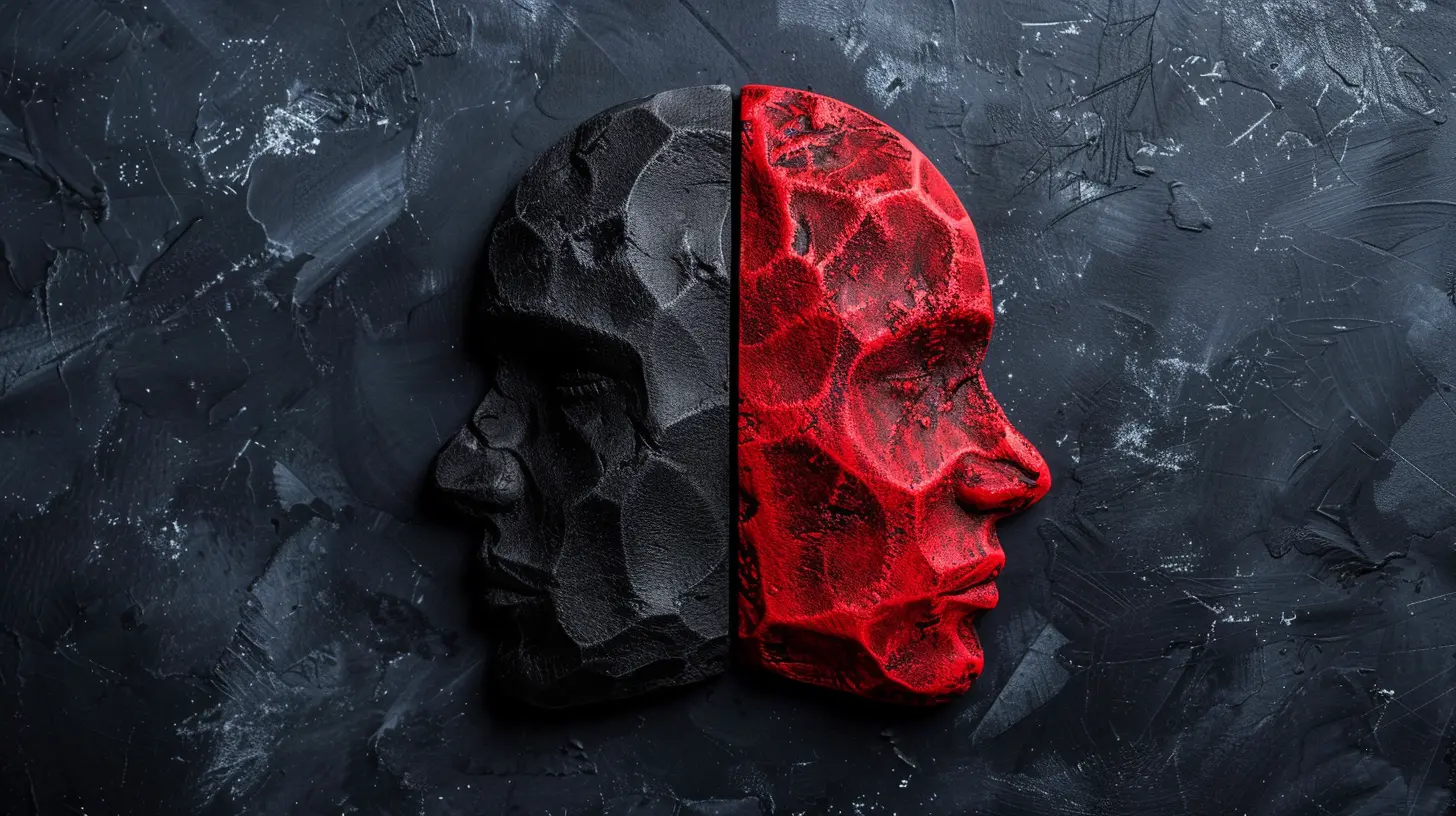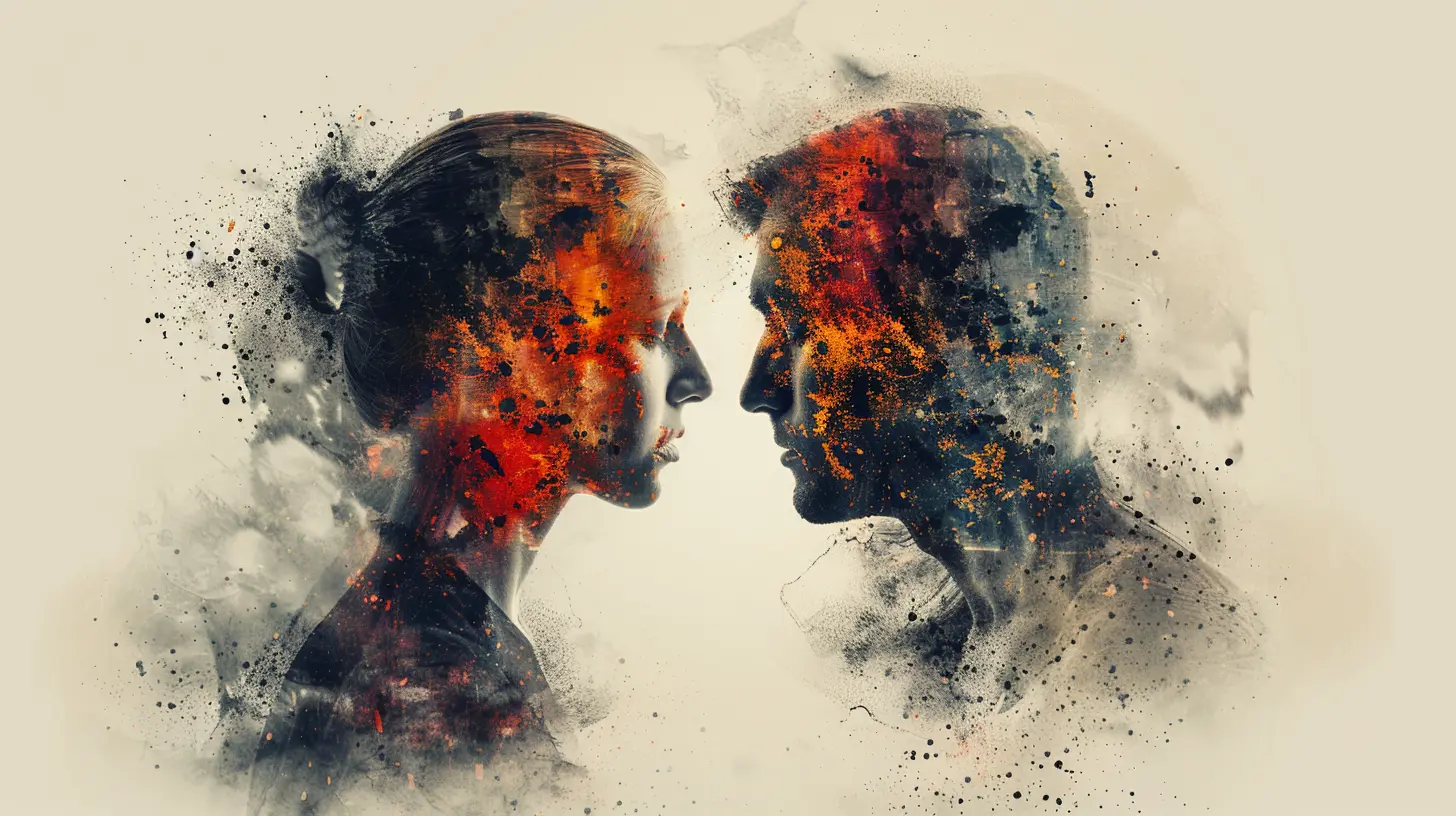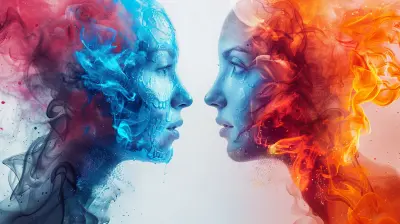Emotional Dependency vs. Emotional Support: Knowing the Difference
28 September 2025
Ever found yourself clinging to someone emotionally and called it “love” or “support”? You're not alone. A lot of us confuse emotional dependency with emotional support, and that confusion can quietly chip away at our well-being and relationships.
But here's the thing — one uplifts you, while the other can quietly drain you.
Let’s unpack these concepts together. Think of emotional support as your emotional Wi-Fi — it helps you stay connected and grounded. Emotional dependency? That’s like being plugged into someone without a backup battery of your own. If they unplug, your emotional world crashes.
Knowing the difference could save your relationships — and your mental health.
What Is Emotional Dependency?
Alright, let’s start with emotional dependency — what is it really?Emotional dependency is when your emotional well-being relies heavily on someone else. We're talking so much dependence that your happiness, your decisions, your sense of self-worth — all of it — are tied to how that other person treats you or responds to you.
It’s Not Love, It’s a Crutch
Many people confuse emotional dependency with love. But here’s a truth bomb — love is about mutual respect and freedom, not obligation and suffocation.In emotionally dependent relationships, one partner might say, “I can’t live without you,” and not just as a romantic phrase. They mean it. Their whole identity hangs by a thread — and the other person’s the one holding the scissors.
Signs You Might Be Emotionally Dependent
Let’s be honest with ourselves for a sec. If any of these ring a bell, you might be trending toward emotional dependence:- You constantly seek reassurance from your partner or friends.
- You feel anxious or empty when you're not around them.
- You're terrified of being alone.
- You avoid conflict just to keep the peace — even when it hurts you.
- You struggle to make decisions without their input.
- Their mood controls your mood.
If that list feels a little too familiar, it’s okay. The first step to change is awareness.
What Is Emotional Support?
Now, let’s talk about emotional support — the healthy stuff.Emotional support is when someone offers empathy, understanding, encouragement, and a listening ear. Think of it as a warm blanket on an emotionally cold day.
But here’s the keyword: mutual. Emotional support flows both ways — you give it, and you receive it in return.
The Healthy Glue of Relationships
Whether it's a romantic relationship, a friendship, or family — emotional support is the glue that strengthens those bonds. It looks like:- Offering kind words when someone’s down.
- Listening without judgment.
- Encouraging someone through tough times.
- Being present, emotionally and physically.
It’s like saying, “I’m here for you,” not “You need me to survive.”
The Gray Area: When Support Becomes Dependency
This is where things get tricky. Emotional dependency often starts as emotional support — at least, that’s how it looks on the surface.Let’s say you’re going through a rough time. Naturally, you turn to someone close. They help you out, and you feel better. The support feels amazing, like an emotional safety net.
But over time, if you start needing that person for every emotional need, and you can’t feel okay without their input or presence — that safety net becomes a trap.
Questions to Ask Yourself
To figure out where you stand, ask yourself:- Can I regulate my emotions on my own?
- Do I rely on multiple people for emotional support, or just one?
- Do I trust myself to make decisions, or do I always need someone else to validate them?
- Is this relationship about sharing or depending?
Being honest with yourself here is crucial. We’ve all had moments of leaning too hard on someone — but recognizing it is what helps you grow out of it.
Why Emotional Dependency Happens
So, where does emotional dependency come from? It usually doesn’t pop up out of nowhere. There are deep-rooted reasons behind it.Childhood Dynamics
If you grew up in a household where your emotional needs weren’t met, you may have learned to cling to whoever offers warmth. That wounded inner child still craves that missing love — and it shows up in adult relationships.Low Self-Esteem
When you don’t feel good about yourself, you look outward for validation. You want someone else to reflect your worth back at you constantly. It feels good — but it’s fleeting.Fear of Abandonment
Ever fear that people will leave if you’re not “strong enough,” “good enough,” or “needed” enough? That’s a classic abandonment wound in action. It pushes you to latch on tightly to others — even to your own detriment.Knowing why you lean into dependency helps you untangle the emotional knot.
Healthy Emotional Support: What It Looks Like
We’ve talked about what emotional support is in theory. But what does it look like in the real world?Let’s break this down:
You're Still Autonomous
Even though there's support, both people are capable of regulating their own emotions. You lean on each other, but you’re also standing on your own feet.Communication Flows Freely
You can talk through conflicts without fearing loss or rejection. Support means having the safety to speak your truth — not tiptoeing around eggshells.There's Space
You both have your own lives and identities outside the relationship. Emotional support respects individuality. There’s no neediness or clinginess — just connection.Respect for Boundaries
Support respects boundaries. If one person needs space or time, the other understands, not panics. It's a balance of closeness and breathing room.Emotional Dependency: What It Feels Like for Both People
Here’s a side we don’t often talk about: emotional dependency doesn’t just impact the dependent person. It can take a toll on the person being depended on, too.For the Dependent
You might feel:- Anxious when alone.
- Insecure in the relationship.
- Panicked during disagreements.
- Exhausted from managing emotions.
For the Other Person
They might feel:- Overwhelmed by constant emotional responsibility.
- Guilty for wanting space.
- Trapped in a caretaker role.
- Drained or resentful.
No one wins in emotional dependency. It starts as love or care, but slowly morphs into obligation.
How to Move from Dependency to Healthy Support
Good news, folks — emotional dependency isn't a life sentence. With effort, awareness, and sometimes a bit of outside help, you can shift toward healthier patterns.Build Self-Awareness
Check in with yourself. Journal. Meditate. Ask, "What am I feeling, and why am I feeling it?" The more you know your emotional landscape, the less you'll depend on others to navigate it for you.Strengthen Your Sense of Self
What makes you, YOU? Hobbies, passions, values — reconnect with them. When your life is full, you won’t lean so hard on someone else's.Learn to Self-Soothe
When anxiety hits, breathe. Meditate. Go for a walk. Listen to music. Talk to yourself like you would a friend. Build an emotional toolkit you can rely on.Seek Therapy
A therapist isn't just for crises. They can help you explore attachment styles, childhood wounds, and patterns you didn't even realize you had. No shame in getting some backup.Practice Healthy Communication
Tell your loved ones what you need — without overloading them. Learn to ask for support, not rescue. There's a difference.Red Flags vs. Green Flags in Emotional Connections
Here’s a cheat sheet to help you spot the difference between emotional support and dependency in real-time.| Red Flags (Dependency) | Green Flags (Support) |
|------------------------|------------------------|
| Panic when apart | Comfort with space |
| Emotional outbursts to get attention | Calm expression of needs |
| Needing constant reassurance | Occasional validation |
| Identity centered around the other person | Individual identity maintained |
| Guilt-tripping or manipulation | Mutual respect and understanding |
Keep this table handy — it can be a game-changer.
Final Thoughts: Give Yourself Grace
Look, relationships are messy. Emotions are messy. And sometimes we lean a little too hard on others. That’s human.But with awareness, effort, and compassion, you can build emotional connections that are supportive — not suffocating. You don’t need to cut emotional ties; you just need to make sure they’re healthy.
So the next time you feel that urge to text someone ten times just to feel okay, pause. Ask yourself: “Am I seeking support, or am I spiraling into dependency?”
The answer might just change everything.
all images in this post were generated using AI tools
Category:
Emotional DependencyAuthor:

Gloria McVicar
Discussion
rate this article
1 comments
Naya Estes
Great insights! Understanding this difference enriches our emotional well-being!
October 16, 2025 at 3:28 PM

Gloria McVicar
Thank you! I'm glad you found the insights valuable for enhancing emotional well-being.


